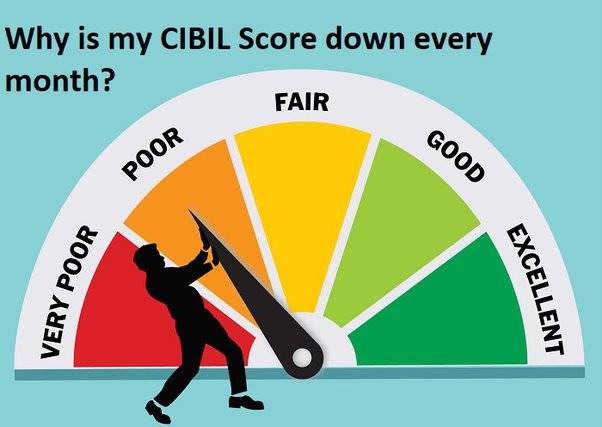In today’s fast-paced world, managing personal debt can sometimes be overwhelming, especially when unforeseen circumstances make it difficult to repay loans in full. For individuals facing financial hardship, a loan settlement can provide much-needed relief. In a loan settlement, a borrower and creditor agree to reduce the total debt owed, allowing the borrower to pay off a portion of the debt while the creditor forgives the remainder. While loan settlements offer a viable solution to managing debt, one common concern borrowers have is how settling a loan might affect their credit report and credit score.
In this comprehensive blog, we’ll dive deep into the effects of loan settlements on your credit report, both in the short-term and long-term, and how you can use a settlement strategically to manage your credit health. While it’s true that a loan settlement may have some negative impacts, understanding these effects and knowing how to manage them can turn this experience into an opportunity for financial recovery and growth.
1. What is a Loan Settlement?
A loan settlement occurs when a borrower and a lender agree to resolve an outstanding debt for less than the full amount owed. This often happens when the borrower is facing financial hardship and cannot meet the terms of the original loan agreement. In a loan settlement, the borrower may make a lump-sum payment or agree to a new payment arrangement, while the lender agrees to forgive the remaining portion of the debt.
For example, if you owe $15,000 to a creditor, but you’re only able to pay $9,000, you might negotiate a loan settlement where the creditor agrees to accept the $9,000 as payment in full. The remaining $6,000 is forgiven. This can provide immediate relief for the borrower by reducing the total debt and helping them regain control of their finances.
While a loan settlement can offer a fresh start, it’s important to understand that it may have consequences for your credit report and credit score. However, when handled correctly, the impact can be mitigated, and the settlement can serve as a stepping stone toward improving your financial health.
2. How Loan Settlement Affects Your Credit Report
When you settle a debt, the way it is reported to the credit bureaus and reflected on your credit report will depend on the terms of the settlement. Here are the key ways a loan settlement can impact your credit report:
1. Marked as “Settled” or “Paid as Agreed”
In some cases, if the loan settlement is favorable, the creditor may agree to mark the account as “paid as agreed” or “settled” on your credit report. This means that you’ve fulfilled the terms of the settlement, and the account is considered resolved.
Positive Impact: If the creditor agrees to report the debt as “paid as agreed” or simply “settled,” it may have a smaller negative impact on your credit report compared to other types of settlements. This reporting indicates that the debt has been resolved, and in some cases, it may even help you avoid the worst consequences of a defaulted loan, such as legal action or wage garnishment.
Credit Score Impact: Although this is not as damaging as a default or bankruptcy, your credit score may still experience a slight decrease because the settlement shows you didn’t repay the full amount. However, this can be seen as a step in the right direction, as it demonstrates that you’ve taken responsibility and resolved your financial issue.
2. Reported as “Settled for Less Than Full Balance”
More commonly, loan settlements are reported to the credit bureaus as “settled for less than full balance” or “settled for less than owed”. This means that the creditor accepted a lower amount to close out the debt, and the remaining balance is forgiven.
Negative Impact: This type of settlement has a more significant impact on your credit report because it indicates that you didn’t meet the original terms of the loan. Creditors and lenders may view this as a sign of financial distress or inability to meet your obligations in full.
Credit Score Impact: While this notation can hurt your credit score, it is still typically less damaging than a complete default or charge-off. It signals to lenders that you negotiated the debt, and while the settlement is noted, it’s still preferable to leaving the debt unpaid entirely.
3. Potential Positive Impacts of Settling a Loan
While it’s true that settling a loan often has a negative impact on your credit score, there are several positive aspects to consider:
Avoiding Default: Settling a debt is usually a better option than allowing the account to go into default, which can result in severe consequences, including wage garnishment, lawsuits, or liens. By settling, you take proactive steps to resolve the issue.
Avoiding Bankruptcy: In situations where you may be considering filing for bankruptcy, a loan settlement may be a preferable alternative. Bankruptcy can have a much more significant and lasting impact on your credit report and financial future, while a settlement can provide a way out without the extreme consequences.
Improving Your Debt-to-Income Ratio: By settling loans and reducing outstanding balances, you lower your debt-to-income (DTI) ratio, which can improve your financial standing and may make it easier to qualify for new credit or loans in the future.
3. How Creditors Report Loan Settlements to the Credit Bureaus
Once a settlement agreement is reached, the creditor reports the status of the debt to the credit bureaus (Experian, Equifax, and TransUnion). The creditor will typically update the credit report to reflect the settlement terms. However, it’s important to understand how creditors may report the settlement:
Consistent Reporting: Not all creditors report the same way. Some may report the debt as “settled,” while others may report it as “settled for less than full balance.” If this happens, it’s important to ensure that the creditor correctly reflects the terms of the agreement as they were negotiated.
Ensure Accuracy: After the settlement, regularly check your credit reports to ensure that the settlement is reported accurately. If there’s an error, you can dispute it with the credit bureau to ensure your credit report reflects the actual terms of the agreement.
4. Short-Term and Long-Term Effects on Your Credit
1. Short-Term Effects
In the short term, settling a debt will likely result in a drop in your credit score, but the extent of the decrease will depend on several factors:
Your current credit status: If the loan was already delinquent or in collections, the impact of a settlement might be less severe than if it were a current loan with no missed payments.
Amount of the debt: Larger debts, such as mortgages or car loans, may have a bigger impact on your credit score if settled. However, settling a smaller credit card balance may have a less noticeable effect.
Type of settlement: If the creditor reports the settlement as “paid as agreed” or “settled,” your score may not drop significantly. On the other hand, if it’s reported as “settled for less than full balance,” the impact on your credit score will be greater.
The key takeaway is that while settling a loan can lower your credit score in the short term, it’s typically much better than ignoring the debt altogether or letting it go to collections.
2. Long-Term Effects
The long-term effects of a loan settlement on your credit report are generally less severe than the immediate impact. As time passes, the settlement will have a diminishing effect on your credit score. Here’s why:
Time Heals: Over time, the negative impact of the settlement becomes less significant. Your credit score may begin to recover, especially if you start practicing good credit habits like paying your bills on time and reducing outstanding balances.
Building Positive Credit Habits: If you use the settlement as a stepping stone to rebuild your credit, the positive credit actions you take after the settlement will gradually outweigh the earlier damage to your credit score. Building new, positive credit history can help your score recover over time.
5. Strategies to Minimize the Impact of a Loan Settlement on Your Credit
While a loan settlement can hurt your credit in the short term, there are several strategies you can use to minimize the impact:
1. Negotiating for Better Reporting Terms
When negotiating a loan settlement, it’s important to ask for favorable reporting terms. Request that the creditor report the debt as “paid as agreed” or “settled in full.” While this isn’t always possible, some creditors are willing to work with borrowers to ensure a more favorable credit report.
2. Impact of Settling Multiple Debts
If you’re settling multiple loans or credit cards, the cumulative effect can be more damaging to your credit score. Consider prioritizing your debt settlements or settling smaller debts first to minimize the negative effects.
3. Monitoring and Reviewing Your Credit Report
After settling your debt, regularly check your credit report to ensure it accurately reflects the settlement terms. If you notice any discrepancies, dispute them with the credit bureaus to have them corrected. Monitoring your credit can help you stay on top of any errors or issues that could hinder your recovery.
6. Alternatives to Loan Settlement
Before deciding to settle a loan, consider other alternatives, such as:
Debt Consolidation: Combining multiple debts into one loan can simplify payments and lower interest rates.
Debt Management Plans (DMPs): Working with a credit counseling service to negotiate lower interest rates and monthly payments.
Bankruptcy: As a last resort, bankruptcy may offer a way to discharge certain types of debt, though it comes with long-term consequences for your credit.
7. How to Rebuild Your Credit After a Loan Settlement
If you’ve settled a loan and want to rebuild your credit, follow these steps:
1. Steps to Take Immediately After Settlement
Ensure the settlement is accurately reported to the credit bureaus.
Pay any remaining balances or installment payments on time.
2. How to Rebuild Your Credit Over Time
Apply for a secured credit card to start building a positive credit history.
Keep credit utilization low (below 30% of your available credit).
Continue making on-time payments to demonstrate your ability to manage credit responsibly.
8. Conclusion: Turning a Loan Settlement into an Opportunity for Financial Growth
While settling a loan does impact your credit report and credit score, it can also be a crucial step toward taking control of your finances. By understanding how a loan settlement affects your credit and implementing strategies to minimize the damage, you can navigate this process successfully. Ultimately, loan settlement allows you to reduce your debt burden, avoid more serious consequences like bankruptcy, and start rebuilding your financial health.
With patience and good credit habits, you can recover from the temporary impact on your credit score and build a brighter financial future.
Get in touch with us today at www.Settleloan.in and embark on your path to financial freedom



